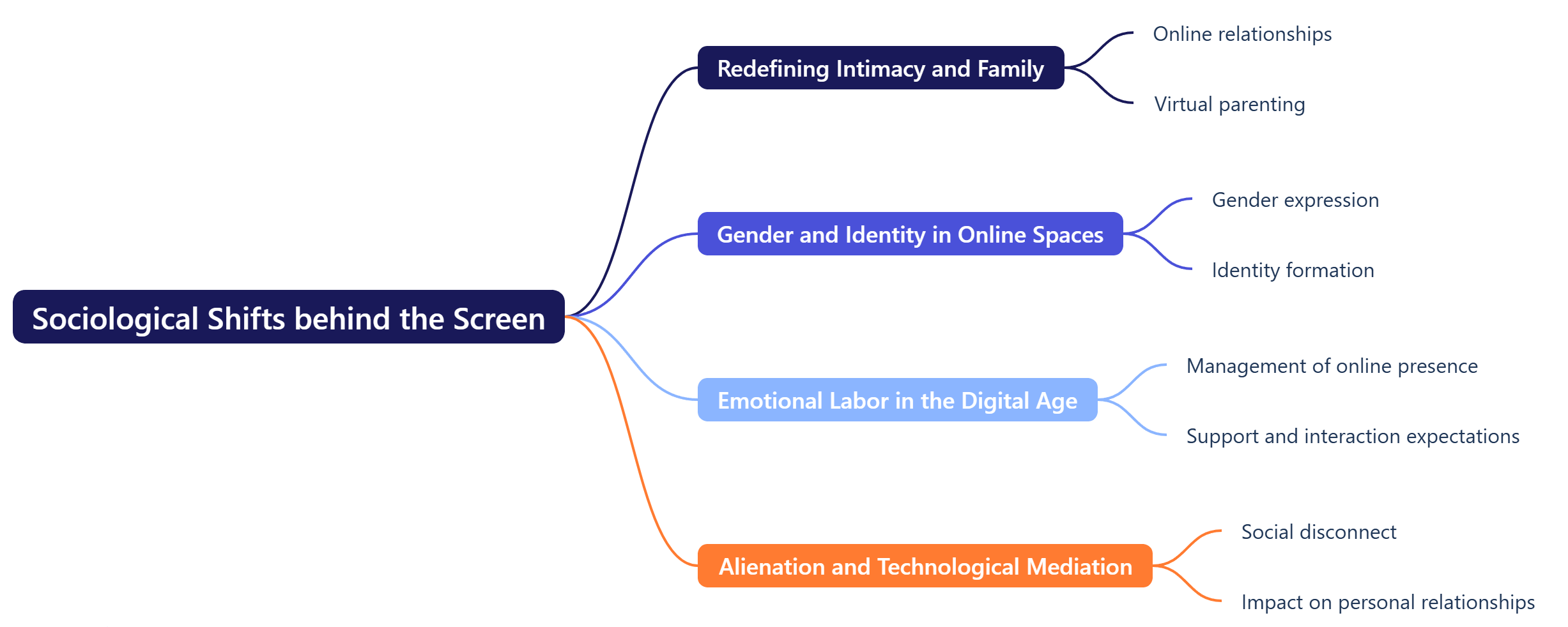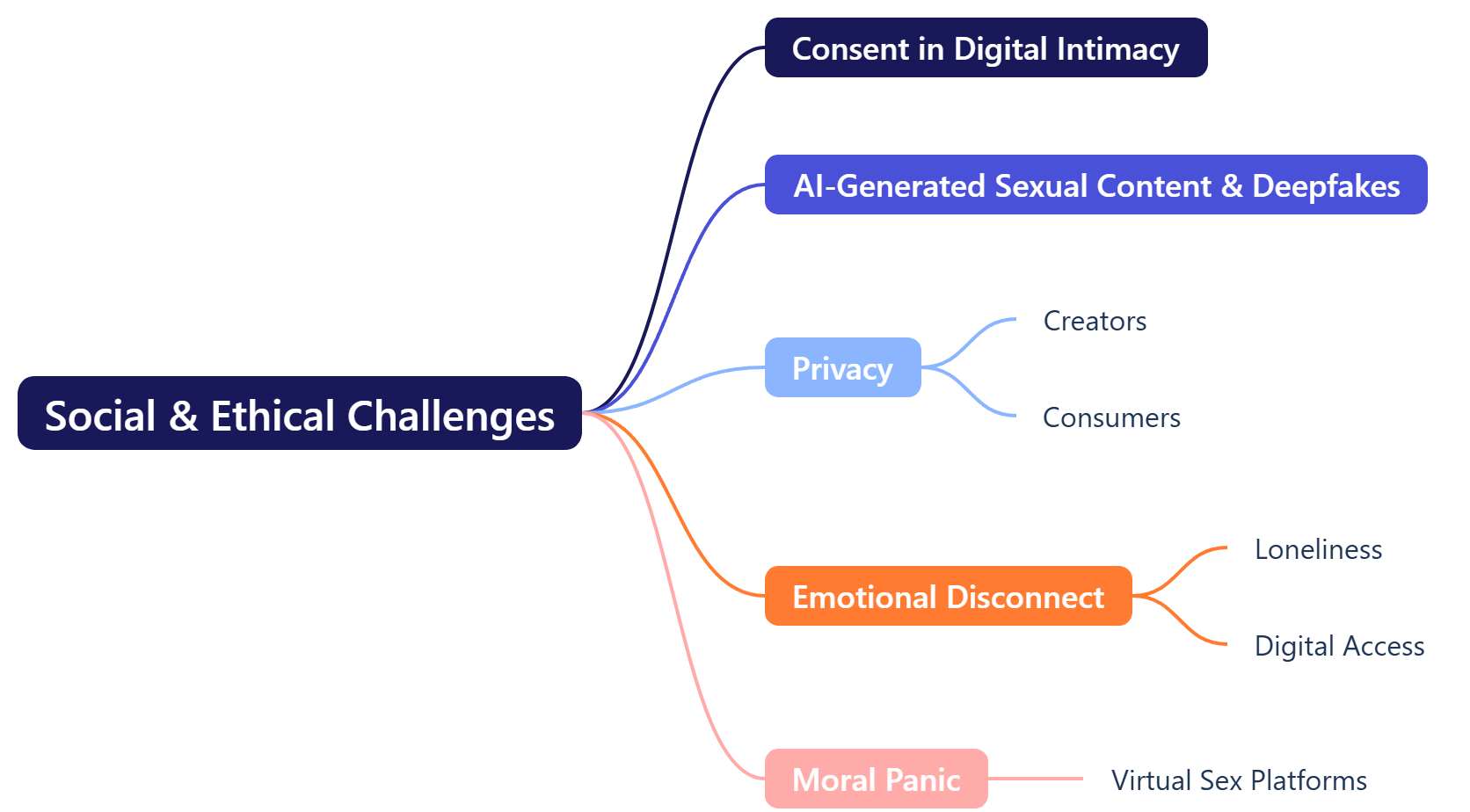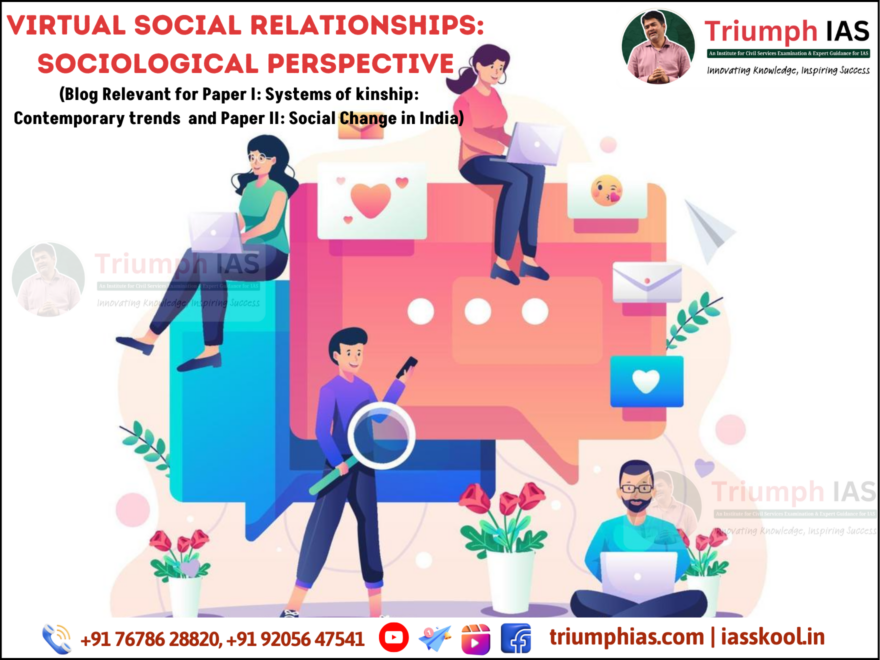Introduction: When Love Goes Digital
In today’s hyperconnected world, the nature of human intimacy is undergoing a radical transformation. No longer confined to physical proximity or traditional courtship, relationships are increasingly formed, nurtured, and monetized in digital spaces. Virtual companionship, emotional connectivity through screens, and AI-enabled intimacy have created an entirely new marketplace — a booming multi-billion-dollar industry that combines emotion, technology, and profit.
This phenomenon is not just a trend; it’s a deep sociological shift, challenging traditional notions of family, sexuality, labor, and human connection.
Rise of the Virtual Intimacy Economy
From AI chatbots offering emotional support to digital platforms selling personalized experiences of companionship, the virtual relationship market has become a complex ecosystem. Subscription-based platforms, adult content creators, virtual sex workers, and metaverse-based dating have created new forms of labor and consumption.
This new economy has grown significantly in the last five years, particularly post-pandemic. As people turned to technology for connection, companies capitalized on emotional gaps by offering simulations of intimacy — whether through text, voice, or immersive virtual experiences.
Sociological Shifts behind the Screen

- Redefining Intimacy and Family: In the age of digital connection, traditional institutions such as marriage and family are being reimagined. Anthony Giddens described this phenomenon as the “transformation of intimacy” — a shift towards relationships based on individual satisfaction rather than obligation. Virtual relationships, by design, prioritize autonomy and personal choice over collective or familial expectations. These changes reflect a move from “structure” to “agency” in human relationships — a key theme in modern sociological discourse.
- Gender and Identity in Online Spaces: Virtual platforms have become significant spaces for the expression of gender and sexuality. Influenced by Judith Butler’s idea of performativity, these spaces allow individuals to construct, deconstruct, and explore identities without the constraints of physical or societal norms. The increasing visibility of non-binary, queer, and fluid identities in online relationships marks a shift towards a more inclusive understanding of gender roles and expressions. In addition, the digital sex work economy has created new pathways for empowerment, especially for marginalized communities often excluded from mainstream labor markets.
- Emotional Labor in the Digital Age: Arlie Hochschild’s concept of emotional labor is central to understanding virtual companionship. Workers in the virtual intimacy market — including those providing emotional support, roleplay, or companionship — perform feelings as part of their job. This commodification of care challenges our conventional understanding of labor and emotional exchange. What was once considered private — affection, empathy, attention — is now bought and sold in digital economies.
- Alienation and Technological Mediation: Despite the hyperconnectivity, sociologists like Zygmunt Bauman warn us of the risks of “liquid love” — fleeting, unstable connections that lack depth. In many ways, virtual relationships offer convenience but also produce alienation, emotional fatigue, and a commodified sense of closeness. As users consume intimacy like content, the emotional substance of relationships may erode, leaving behind a simulation of love rather than the real thing.
Cultural and Economic Implications
In the Indian context, the rise of virtual relationships intersects with urban youth culture, economic liberalization, rising smartphone penetration, and shifting moral attitudes. Dating apps, online friendships, and sex-tech platforms are altering traditional courtship norms, particularly among middle and upper classes.
Moreover, this transformation reflects global-local dynamics — Western models of romance are being adapted to Indian social conditions, creating hybrid forms of intimacy.
Simultaneously, the rise of AI companions and virtual partners also has implications for elderly care, disability inclusion, and mental health — opening up debates around ethics, dependency, and digital loneliness.
Sociologists view on Virtual Relationships

- Alienation and Virtual Intimacy: Karl Marx’s concept of alienation describes the estrangement of individuals from their labor, products, and even social relations under capitalism. In the era of virtual intimacy, individuals often seek emotional connection through commodified digital platforms — such as dating apps, AI companionship, or cam-based virtual sex — which reflects deeper alienation from real, organic human bonds. These relationships, while seemingly personalized, are often mediated by algorithms and profit motives, reducing intimacy to a transactional experience. The more one turns to paid emotional labor or artificial affection, the further they become alienated from authentic social relationships and community life.
- Individualism vs Collectivism and Virtual Intimacy: Durkheim emphasized the shift from mechanical solidarity (based on collective norms) to organic solidarity (based on interdependence and individualism) in modern societies. Virtual intimacy signifies an intensification of individualism, where personal needs, desires, and expressions dominate over collective values like familial responsibility, social conformity, or marital permanence. The digital realm allows people to form ephemeral, choice-based relationships with minimal social regulation or sanction. This loosening of collective conscience, while liberating, also contributes to anomie — a condition of normlessness — as individuals navigate intimacy in isolation from traditional moral frameworks.
- Media Shaping Society and Virtual Intimacy: Marshall McLuhan’s idea that “the medium is the message” explains how media not only transmits content but actively shapes social experiences. In the context of virtual intimacy, the platforms themselves — are it dating apps, social media, or VR environments — redefine how intimacy is perceived, constructed, and consumed. The aesthetics of profiles, gamification of dating, and instant gratification culture reprogram the nature of human intimacy, emphasizing visuals, speed, and consumption over emotional depth and continuity. McLuhan’s theory helps us understand how technology becomes the architect of modern relationships, not just a facilitator.
Social & Ethical Challenges

- Consent in digital intimacy.
- AI-generated sexual content & deepfakes.
- Privacy of creators & consumers.
- Emotional disconnect and loneliness despite digital access.
- Moral panic around virtual sex platforms.
Conclusion: Virtual Is Real, but Is It Enough?
Society constantly adapts to changing technologies — but not without conflict and contradiction. Virtual relationships are liberating and alienating both, empowering and exploitative. They represent a new phase in the human experience — where intimacy, once grounded in touch and presence, is now encoded in algorithms and exchanged in bytes.
PYQ
Sociology Paper – I (Fundamentals of Sociology)
- “What is the relationship between ‘structure’ and ‘agency’ in sociological theory?” (2022)
- “Examine the changing nature of family in the context of contemporary trends.” (2020)
- “Discuss the impact of post-modernism on sociological theory.” (2018)
- “What is ‘emotional labour’? Examine its significance in the service sector.” (2016)
- “‘Media is the message’ — Comment.” (Marshall McLuhan) (2013)
Sociology Paper – II (Indian Society)
- “How do social media and online platforms shape youth aspirations and social relationships in India?” (2022)
- “Evaluate the role of new media in bringing about social change in India.” (2021)
- “Discuss the impact of growing individualism and self-interest on traditional social institutions in India.” (2018)
- “Discuss the changing trends in marriage and family in modern India.” (2015)
|






One comment